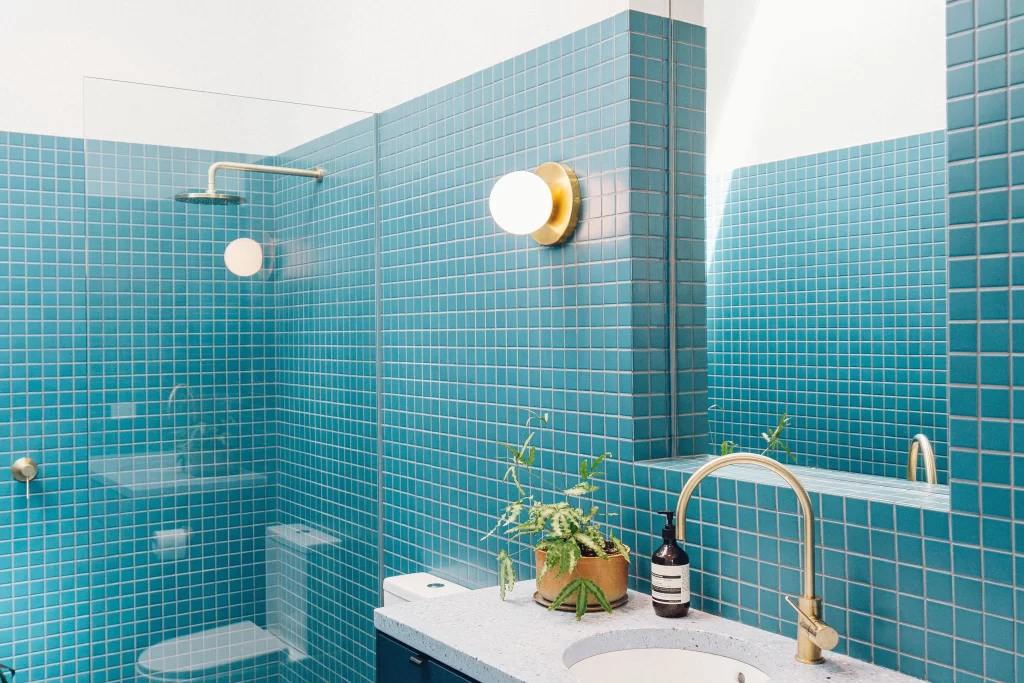When it comes to renovating a bathroom, choosing the right tiles is crucial for achieving both aesthetic appeal and functionality. This guide provides in-depth insights on selecting the perfect tiles for your bathroom, ensuring durability, style, and a touch of your personal taste. From understanding the different types of tiles to considering various factors like moisture resistance, slip resistance, and maintenance, we’ve got you covered. Whether you’re undertaking a DIY Bathroom Renovation or planning a professional remodel, this article will steer you in the right direction.
Understanding the Types of Bathroom Tiles
Bathroom tiles come in an array of materials, each with its own set of characteristics. Ceramic and porcelain tiles are popular for their durability and water resistance, making them ideal for bathroom floors and walls. Natural stone tiles, such as marble, granite, and slate, add a luxurious touch but require more maintenance. Glass tiles offer a modern look and can create the illusion of more space with their reflective surface.
Choosing Tiles Based on Location and Use
When selecting tiles for different areas of the bathroom, consider the tile’s exposure to water and foot traffic. Porcelain tiles, known for their low porosity, are an excellent choice for shower areas. For flooring, choosing tiles with a textured surface or a slip-resistant coating can significantly enhance safety.
Color, Size, and Pattern Considerations
The color and size of your tiles can influence the overall look and feel of your bathroom. Light-colored tiles can make a small bathroom appear larger, while dark tiles add depth and sophistication. Larger tiles minimize grout lines, creating a seamless appearance and easier maintenance. Incorporating patterns or accent tiles can add a unique touch to your design.
Moisture Resistance and Maintenance
Bathrooms are high-moisture environments, requiring tiles that can withstand constant exposure to water. Porcelain tiles are highly recommended due to their low water absorption rate. When it comes to maintenance, opting for tiles that are easy to clean and resistant to staining will ensure your bathroom remains beautiful for years to come.
Durability and Longevity
Choosing high-quality tiles that can endure daily use is essential for a bathroom that lasts. Porcelain and ceramic tiles are renowned for their durability and resistance to cracking. For natural stone tiles, sealing is necessary to protect against moisture and stains.
Eco-Friendly Options
For those looking to make environmentally conscious choices, there are several eco-friendly tile options available. Recycled glass tiles and ceramic tiles made from sustainable materials not only reduce environmental impact but also add a unique aesthetic to your bathroom.
Setting a Budget
Bathroom renovations can vary widely in cost, so setting a budget for your tile purchase is vital. While it’s tempting to opt for cheaper options, investing in high-quality tiles can save money in the long run due to their longevity and lower maintenance costs.
Installation Considerations
Proper installation is key to maximizing the lifespan and appearance of your bathroom tiles. For those considering a Tiling Best Practices, it’s important to familiarize yourself with the process or consult with a professional. This includes understanding the right adhesive, grout selection, and sealing procedures.
Final Thoughts
Choosing the right tiles for your bathroom is a blend of practicality and personal style. By considering factors such as durability, moisture resistance, maintenance, and aesthetics, you can create a space that not only looks great but also stands the test of time. Remember, whether you’re embarking on a DIY project or hiring professionals, proper planning and research are key to a successful bathroom renovation.
You may also like
-
Effective Garage Door Maintenance Routines That Reduce Long-Term Repair Expenses
-
Interior Rendering Features in Monthly Showcase Portfolios: Realism, Ray Tracing, Faster Updates
-
Step-by-Step Plan Tips for Selling House without Stress
-
Best Options for Shipping Containers in Bozeman
-
Design & Function: A Guide to Choosing the Right Style of Glass for Your Office Partitions

